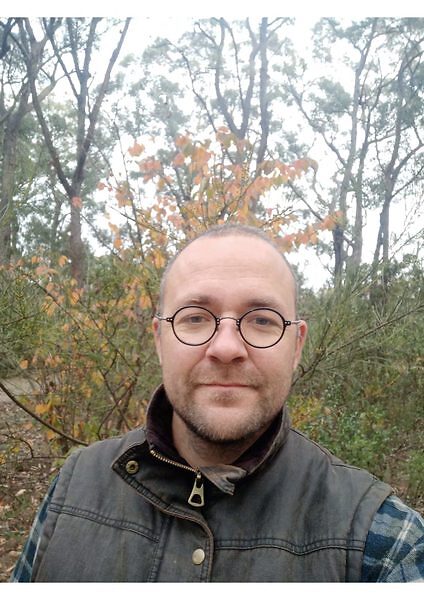Seminar "The Free Energy Principle: Challenges and Implications for Thinking about Life-Mind Continuity" by Dr. Michael D. Kirchhoff

Date
Location
Description
Speaker: Dr. Michael D. Kirchhoff, University of Wollongong
Title: The Free Energy Principle: Challenges and Implications for Thinking about Life-Mind Continuity
Abstract: In this talk I begin by providing a general introduction to active inference under the free energy principle, sketching its motivating principles; its formulation in terms of the Markov blanket formalism; and its formulation in terms of an (active) Bayesian framework for model optimisation both via perceptual and active inference. I then raise a number of select challenges and possible implications for utilising active inference under the free energy principle in the discussion over life-mind continuity: (1) The Explanatory Vacuity challenge - this is the implication that the free energy principle applies to any system, where it is possible to delineate between internal and external states given a set of Markov blanket states. Building on previous work, Kirchhoff et al. (2018), I consider a way to overcome this explanatory challenge. (2) The Boundary challenge - this is the challenge to determining how to locate the boundaries of a system whose dynamics change only to minimise free energy. The question is: where in space-time is the agent that is engaged in free energy minimisation? Building on Ramstead, Kirchhoff et al. (2019), I will explore answers to this by focusing on the individual brain, the notion of an extended phenotype, and take steps to applying the Markov blanket formalism to multi-agent dynamics. (3) The Universal Ethology challenge - the free energy principle states that free energy minimisation is premised upon a generative model, such that sensory outcomes can be inferred given probabilistic dependencies between hidden causes and outcomes under prior beliefs and their likelihood. This suggests that any free energy minimising system is an inferential system. The universal ethology challenge suggests that life itself does not require inferential, future-oriented dynamics by individual agents. If coherent, it blocks the free energy principle from providing a unifying account of life and mind. This challenge will be addressed by carefully distinguishing active inference from other inferential theories such as predictive processing. Finally, (4) I take up the Representationalist Challenge, which states that inference over representational states are mandated by the free energy principle. Building on Kirchhoff & Robertson (2018), I leverage formal tools from machine learning to show why free energy minimisation - and therefore, life and mind - need not, in all cases, embrace a representational formulation.
Bio: Michael Kirchhoff works across philosophy of mind, philosophy of cognitive science and theoretical biology. He is an expert on discussions around the boundaries of mind, including consciousness. His current research focus involves providing a theoretical treatment of the following question from the perspective of the 'free energy principle' (FEP): how are life and mind, respectively, characterized, and how are their relations to one another best understood? This work involves combining key insights from statistical physics, thermodynamics, and probability theory to understand, most basically, how life is possible and how it is related to mind, and vice versa. Kirchhoff has curated a special issue in Synthese exploring the intersection between Bayesian approaches to neuroscience and so-called 4E - embodied, enactive, extended, and embedded - cognitive science. He is also the author of a book with Routledge on Extended Consciousness and Predictive Processing. In the context of theoretical biology, Kirchhoff works on applying tools from probability theory and machine learning to understand the organisation and function of living systems, especially self-organisation. Kirchhoff is also part of an ARC Discovery Project on Minds in Skilled Performance, where he works to understand the explanatory basis of skilled performance by applying the formal apparatus of the FEP to unpack key elements in skilled performance such as anticipation and intelligence. He was recently named a "Rising Star" in the Australian Special Reports Research Supplement 2019, listing “Australia’s top 40 researchers who are less than 10 years into their careers, where the best five performers have been selected from each of the eight main disciplines [all areas of academia].” This was based on a survey of researchers with the highest h-index scores (Google Scholar) relative to career stage - https://specialreports.theaustralian.com.au/1540291/33/
Subscribe to the OIST Calendar: Right-click to download, then open in your calendar application.



